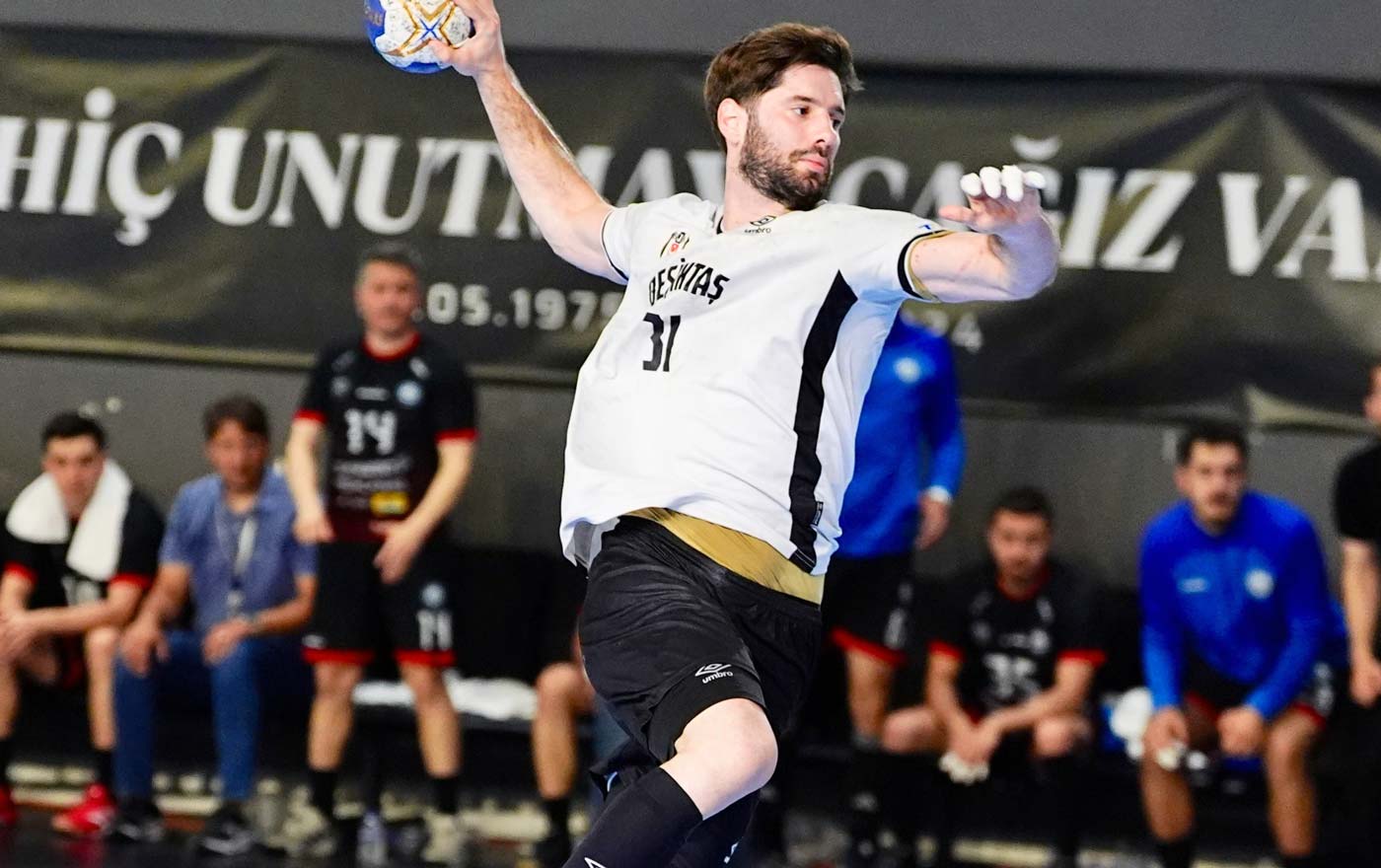
Joan Amigó, professional handball player and graduate of the Master in Sport Business Online at Johan Cruyff Institute, shares in this interview how he has combined his sporting career with academic and professional education
Despite his long career as a handball player, Joan Amigó also studied Business Administration and Management and even combined sport with his work as a consultant. “I have always linked my sporting career with my academic training,” he says. The Master in Sport Business Online allowed him to specialize in the sports industry without giving up his role as an athlete.
Trained at Barça Atlètic, Joan has competed in the leagues of France and Spain. Speaking from Turkey, where he currently plays for Beşiktaş, he reflects on his career and his experience at Johan Cruyff Institute.
What personal and professional lessons has your career in Spain, France, and Turkey taught you?
I had two stages in Spain: the first at FC Barcelona B between the ages of 18 and 25, and the second at BM Granollers, between 28 and 31. It was in Granollers that I developed a more mature view of sport as a profession, and where my interest in studying a master’s was born.
“In France, I experienced professional handball from the inside, which allowed me to compare different models of sport management. ”
There, even the second division is professional: there is greater attention to sports marketing, sponsorships, fan experiences in stadiums, and so on. This experience sparked my interest in understanding which practices could be applied in the Spanish context.
In Turkey, handball is less developed, although football and basketball have more professionalized structures. At Beşiktaş, I see a project with potential, but with many challenges in terms of professionalization.
How has your role as a player evolved over the years?
During my seven years at Barça B, I went from being the youngest on the team to becoming captain. Later, at clubs such as Nice and Granollers, I also took on leadership roles, even wearing the captain’s armband at key stages. At Beşiktaş, although I am not the captain, I play an important role within the team.
What do you consider the most challenging moment of your sporting career?
I haven’t suffered any major injuries, which is already a great stroke of luck. But each new team means a process of adaptation: fitting in, understanding the system of play, earning your place. At Granollers, for example, I specialized in defense, which was a significant change. Moving to Turkey was also a challenge: adapting culturally and professionally is demanding, but also enriching.
What motivated you to study at Johan Cruyff Institute?
I have always considered it essential to combine sport and studies. While playing at Barça B, I studied Business Management at the University of Barcelona, and later I worked as a consultant in quality and environmental management systems.
“When I learned that Johan Cruyff Institute offered scholarships for athletes, I didn’t hesitate. The master’s was ideal to keep developing my education in sport management without disconnecting from the sporting world”.
How has this academic training influenced your view of sport and your professional future?
The master’s helped me better understand the reality of the club where I played. Even though at Granollers we achieved great sporting results with a modest budget, there were challenges in the financial area.
“The program gave me tools in sports marketing and sponsorship to align revenues with performance”.
I believe professional work in these areas can make a real difference in the sustainability of clubs and their ability to retain talent.
What would you recommend to a young athlete who wants to develop both a professional and academic career?
I would tell them not to rush. Many times, we think we have to finish a degree in four years, but that’s not true. A sporting career can last 15 or 20 years, and there is time to study at your own pace.
I completed the Master in Sport Business Online in two years, although it can also be done in one. I preferred to take more time in order to absorb the content and apply it properly. The important thing is to stay committed and understand that education is key for both your present and your professional future.





